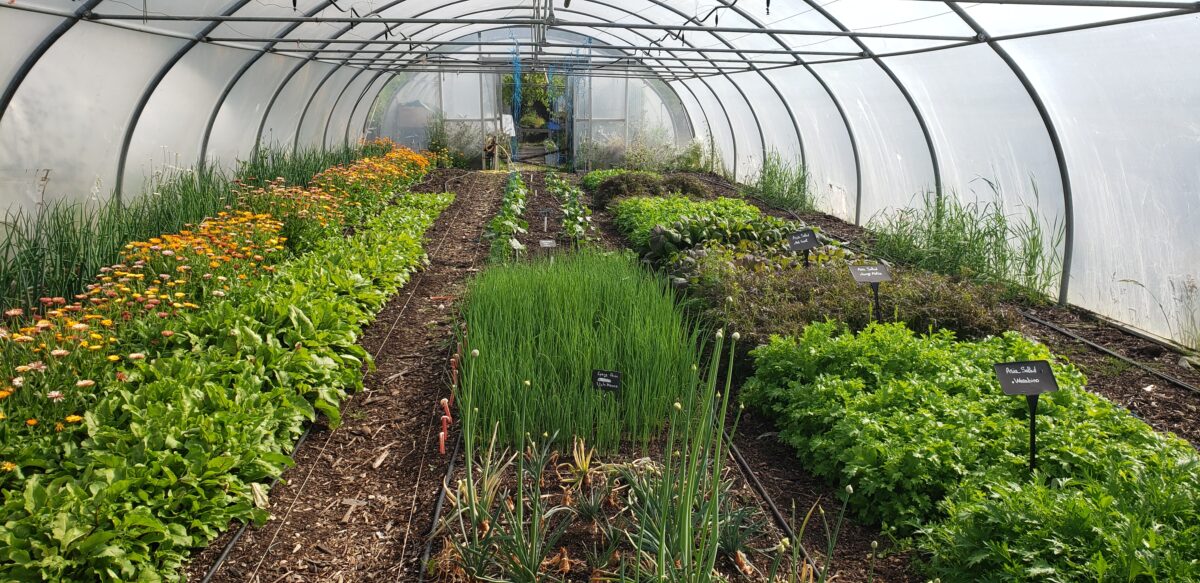As a registered dietitian, Erin Bergquist, M.P.H.’07, RD, counseled patients one-on-one about eating healthfully to manage their diabetes, cardiovascular conditions, obesity and other health issues. After about three years in practice, she wanted to do more.
“Once you have a chronic condition, it is more difficult to treat it through diet. A lot of the time you are trying to mitigate additional complications,” she says. “I started the master of public health program [at DMU] because I wanted to look at nutrition more holistically, at 20,000 feet.”
As part of her master’s internship project, Bergquist worked with Susan Roberts, J.D., M.S., RD, in conjunction with the Drake University Agricultural Law Center to produce the 2007 Hunger in Iowa Report, which revealed that “even in the breadbasket of the world,” more than 132,000 households, or more than 421,000 Iowans, were food-insecure, an increase from previous reports. The 2007 report considered both household and community food security.
“We found that a Des Moines metro zip code with the highest poverty and greatest diversity had no grocery stores within walking distance, but there were 88 fast food, convenience and liquor stores,” she says.
Now a clinical professor in Iowa State University’s Food Science and Human Nutrition Department, Bergquist leads students in sustainable food systems programs in the U.S. and abroad. Last fall, she led a monthlong community nutrition rotation in Ghana, Africa. In June, she spoke at a conference at University College Dublin about using systems thinking as a foundation for teaching sustainable food and water systems in nutrition and dietetics.
“In systems thinking, we consider the big picture of how to provide food that’s nutritious, culturally appropriate, accessible and sustainable,” she says. “It’s thinking beyond the individual. Positive changes can be made if we change the built environment to provide healthy food that’s convenient, accessible and affordable.”
Active in the Academy of Nutrition and Dietetics, Bergquist, in 2014, was part of a work group that developed a set of Standards of Professional Performance for dietitians that incorporated sustainable, resilient and healthy food and water systems.
“It was rewarding and challenging, entering this new territory for the profession. We tried to fit systems-level concepts in SOPPs that had been built with a more clinical focus,” she says. She used those standards to help develop the curriculum for Iowa State’s Master of Professional Practice in Dietetics program that’s designed to train future registered dietitian nutritionists.

In Ghana, she and her students focused on child and maternal health, specifically nutritional feeding strategies for babies, in an agricultural, low-resourced region with unsafe drinking water. She guided students against suggesting solutions without living in the region or considering the barriers. Instead, they partnered with faculty at the University of Ghana and local elders, elected officials and dietitians to strategize on feasible, sustainable solutions. They also organized a health fair with cooking demonstrations, skits and music.
“The local chief spoke and reinforced all our messages about investing in their children’s health. It was a good experience for the community and training for our students,” Bergquist says.
